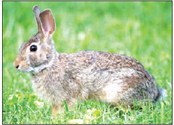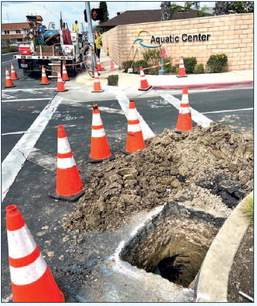Disease deadly to rabbits confirmed for first time in OC and area counties


DEPARTMENT OF FISH/WILDLIFE
On May 11, rabbit hemorrhagic disease virus serotype-2 (RHDV2) was confirmed in a wild black-tailed jackrabbit collected from an area where over 10 dead jackrabbits were found near Palm Springs, Riverside county, according to the California Department of Fish and Wildlife. Since this initial report RHDV2 has been confirmed in the following California counties: Orange, Riverside, San Bernardino and San Diego.
This highly infectious virus affects domestic and wild lagomorphs (members of the rabbit family).
RHDV2 can spread quickly and can cause high mortality in affected rabbit populations.
To date, RHDV2 has only been detected in domestic rabbits, wild cottontails and jackrabbits, but all lagomorph species may be susceptible.
The virus poses no risk to humans or other animals. RHDV2 is spread through contact between infected rabbits, their meat or fur, respiratory fluids, urine, feces, contaminated soil or materials in contact with those items. It can be easily spread to new areas by moving rabbits or contaminated items, and on shoes or clothing. It may also be spread by insects and scavengers after contact with sick or dead rabbits.
The Department of Fish and Wildlife is tracking the geographic spread and impact of RHDV2 on wild rabbits, jackrabbits and hares. Rabbits with RHDV2 may die quickly after infection. Blood may be present at the nose or mouth of the animal.
Help us monitor this new wildlife disease in California:
• Report sick or dead wild rabbits (two or more) found in an area over a short period of time (3-4 days apart).
• Do not handle the carcasses.
Domestic rabbit owners who have a sick rabbit should contact their veterinarian.
If rabbits are found dead, contact Long Beach Animal Care Services at (562) 570-7387 (the City of Seal Beach contracts with City of Long Beach Animal Care Services for animal control services).
—from the California Department of Fish and Wildlife



